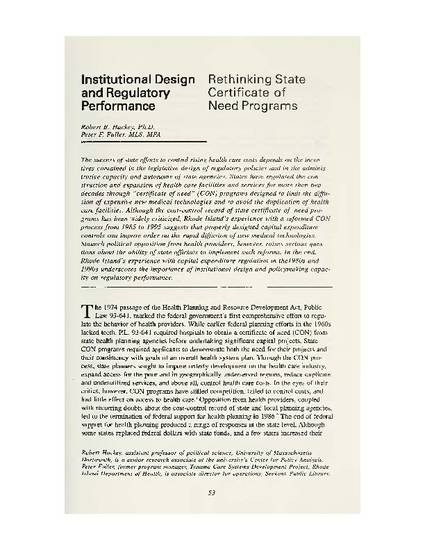
The success of state efforts to control rising health care costs depends on the incentives contained in the legislative design of regulatory policies and in the administrative capacity and autonomy of state agencies. States have regulated the construction and expansion of health care facilities and services for more that two decades through “certificate of need” (CON) programs designed to limit the diffusion of expensive new medical technologies and to avoid the duplication of health care facilities. Although the cost-control record of state certificate of need programs has been widely criticized, Rhode Island’s experience with a reformed CON process from 1985 to 1995 suggests that properly designed capital expenditure controls can impose order on the rapid diffusion of new medical technologies. Staunch political opposition from health providers, however, raises serious questions about the ability of state officials to implement such reforms. In the end, Rhode Island’s experience with capital expenditure regulation in the 1980s and 1990s underscores the importance of institutional design and policy making capacity on regulatory performance.
Available at: http://works.bepress.com/robert_hackey/22/
